
Establish A Healthy Relationship With Food Using 10 Simple Strategies
Have you ever taken a minute to think about how your relationship with food is, without any outside influence? Would you say it’s healthy for your mind and body?
Food is so simple yet is a need for our survival. We’re surrounded by a ton of nutrition information on what to eat, what not to eat, diets, workouts, ‘expert’ opinions, healthy, unhealthy, the list goes on. The very different information out there can be very confusing to anyone, leading to more harmful decisions than helpful ones, especially if we don’t have a healthy view of food and a good understanding of our bodies.
When we think about it, we usually forget that all people are unique because everyone’s bodies are all different, making our relationship with food personal. It is essential to establish a healthy relationship with food by adopting healthy habits which will lead to a healthier lifestyle for everyone; once you do, it becomes a way of life.
1. First Thing First, Let’s Fix That Mindset

Zainab Dokrat (SpicyFusionKitchen)
Okay, hear me out; I know it can be frustrating to hear and read everywhere that “you need to be more positive,” whether about food, body image, fitness goals, or all of the above. But, it is true, your mindset needs to change, and the only way to do this is to do the work.
If we reflect on the way we think now, we’ve been conditioned for years to view food and our body in a certain way, so it’s silly to think we can just forget that way of thinking and have a whole new ‘mindset’ and perspective so quickly.

Zainab Dokrat (SpicyFusionKitchen)
“Mindful eating isn’t linear. It’s more like a spiral taking you deeper into knowing how to care for yourself”
Changing your mindset is a gradual process that requires a lot of reflection and realization. You need to accept your body, begin to view food in a different light, become kinder to yourself, allow yourself to eat without harboring annoyance, and spend time thinking about what to eat and not focusing so much on what to avoid eating. Once we develop a positive outlook and begin to accept and love who we are, only then can we begin to develop a healthy relationship with food.
2. Pay Attention To Your Body, Not The Latest Trending Diet
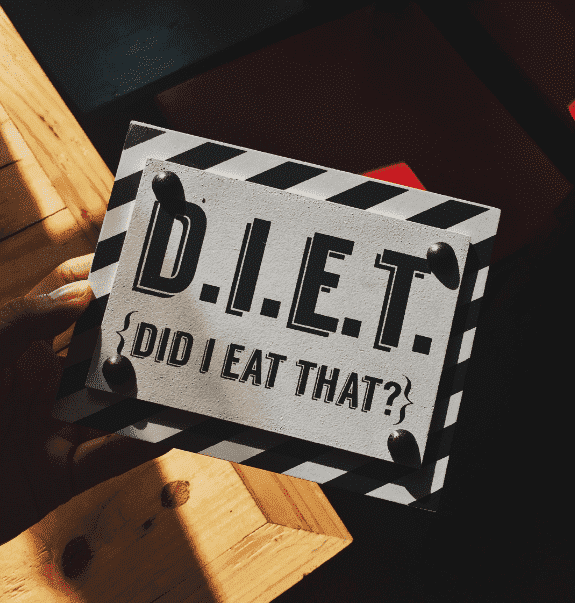
Unsplash
What’s good today can be bad for you tomorrow, and that can become very confusing and frustrating to continually try to keep up with what’s right and wrong in the nutrition world.
Once your mind starts to clear up from all the negativity you’ve been conditioned to have towards food, you’ll become more in tune with your body. This is when you will know what foods actually agree with your body and what doesn’t, so you will be able to make the right decisions on whether, for example, you need to cut out gluten from your diet or not.
Latest trending diets can suck us in, but with a lack of awareness of our own body’s and acknowledgment of lifestyle, it can cause the diet to not work for us, leading to frustration and more negative towards food general, creating an unhealthy relationship with food.
3. Setting Healthy And Realistic Goals
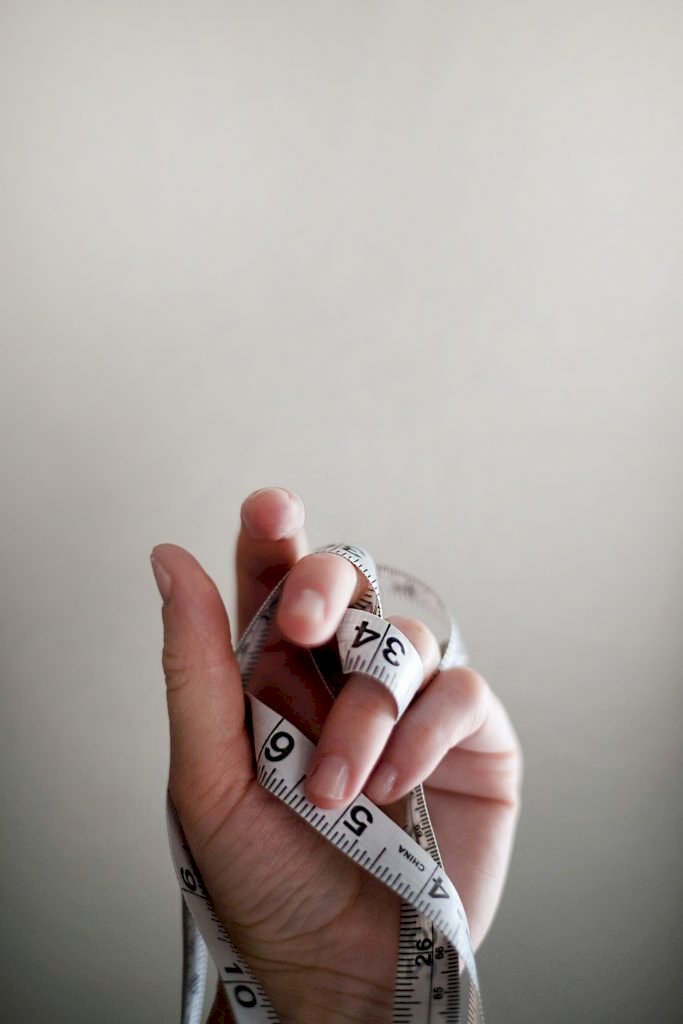
Unsplash
It’s best to start with small goals that won’t overwhelm you, and you can work towards, such as “I want to be able to run for an hour without feeling like I’m going to faint,” “I’d like to have more energy,” “I want my body to look more toned,” “I’d like to lose 5kg” or “I need to lower my cholesterol.”
Healthy goals which you slowly achieve will motivate you to continue to have a healthy relationship with food. When we unconsciously set unrealistic goals that we cannot succeed in the amount of time we set, it can discourage us, creating an unhealthy relationship with food. These goals will not only have you look good in the long run, but you will feel much better, both mentally and physically, which is the real goal.
4. Pre-plan, Focus On Nourishment And Not Starving Yourself
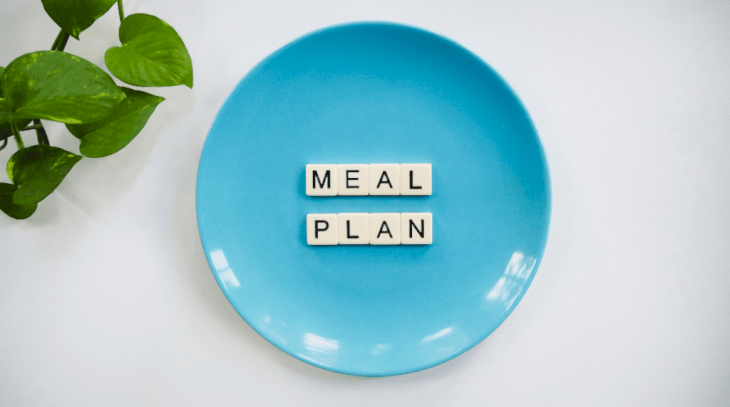
Unsplash
Once you have your healthy and realistic goals planned out, you can focus on your game plan to achieve them. The best thing to focus on is what your body needs in nourishment and what foods it may not agree with. Once you have an idea of foods you need to have in your diet, consider your lifestyle, you can begin to pre-plan your meals, which is essential in feeling organized and calmer when it comes to food.
If you’re someone who won’t be able to stick to trying to be healthy and you live a busy life, pre-planning meals are a lifesaver. Your plan doesn’t need to be set in stone, but having an idea of what you’d like to eat during the week can also make shopping for groceries a smoother process, and it will keep your mind on track.
5. Try Cooking
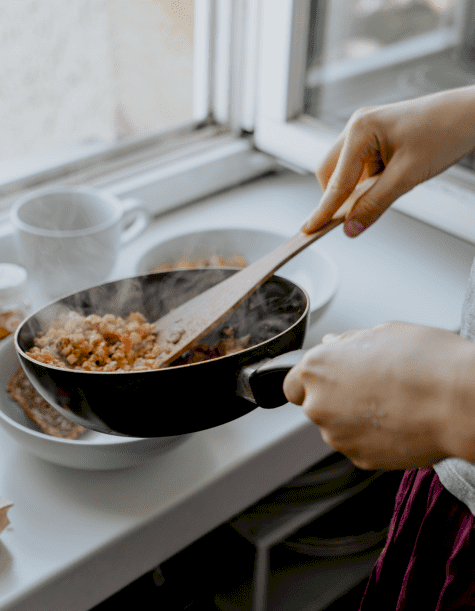
Unsplash
The best way to ensure you have a healthier relationship with food while being positive, having healthy goals, pre-planning meals is to give cooking a try. Yes, I know it can be daunting if you’re not confident in the kitchen but remember you don’t have to be a Masterchef; there are many recipes that are super easy and fast to make that are delicious. It is a much healthier and money-saving trick because you won’t order in or eat out all the time.
When you cook, you know what’s going into your food, how nutritional it is, and plan it according to your preference in portion size, taste, and you can use Grade A level products.
6. Remember Moderation Is Key
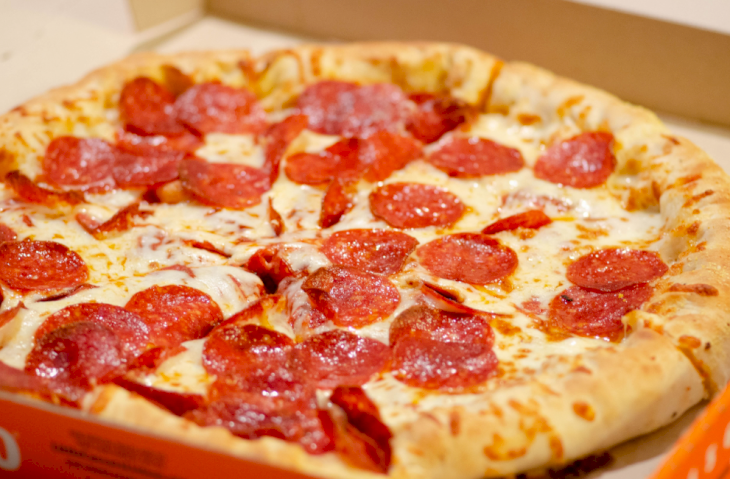
Unsplash
Want to order a pizza on Friday but not sure if you should? Order the pizza! It sounds like bad advice, but it isn’t. When it comes to maintaining a healthy relationship with food, you don’t need to deprive yourself!
“Some foods are better for your well-being than others, but no food is either evil or benevolent”
You don’t need to sit there eating a salad every day while dreaming about a burger. You can have whatever food you want to eat but always remember moderation is key! You can have all your favorite foods and treats; you just need to know your limit, and once you view food differently, have goals and a plan, you’ll be able to eat whatever your taste buds crave with a limit, and you won’t feel discouraged afterward.
7. Lower Your Chances Of Making Bad Choices
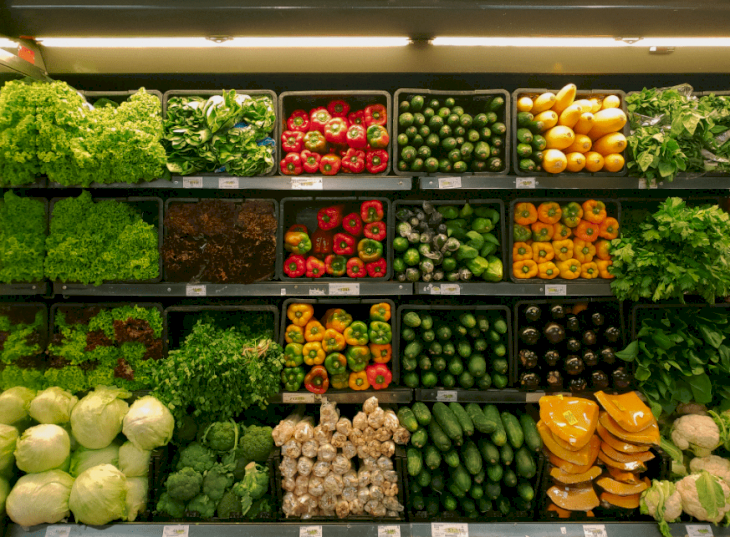
Unsplash
One of the best ways to make sure you continue with this healthy relationship with food is not setting yourself up for failure. How do you do this, you may ask? When you have a meal plan and you buy groceries, always have a list on hand.
Don't deprive yourself, so maybe one snack will do, but the more sweet and salty snacks you have stocked in your pantry, the more chances you have to go way off your goals, and it can lead you to feel frustrated and discouraged. If it’s there, you’re more likely going to want to grab some popcorn or other snacks every night while you binge some Netflix.

Unsplash
A way to fix this is to plan healthy snacks and set a grocery budget with your pre-planned meals in mind. Again, you don’t need to deprive yourself; however, you can minimize your opportunities to make bad choices since you control what foods/snacks you keep stocked at home.
8. Eat When You're Physically Hungry, Not Just Because It's Meal Time
Once you become more in tune with your body and begin to have a healthier mindset, you will pay attention to when you’re hungry and only then eat.
We’ve been conditioned to have three meals a day with snacks in between. However, sometimes we aren’t even hungry; we’re just eating because it’s lunchtime or we may be feeling stressed. This can lead to us not feeling our best because we may feel full all the time, affecting our energy levels and mood.
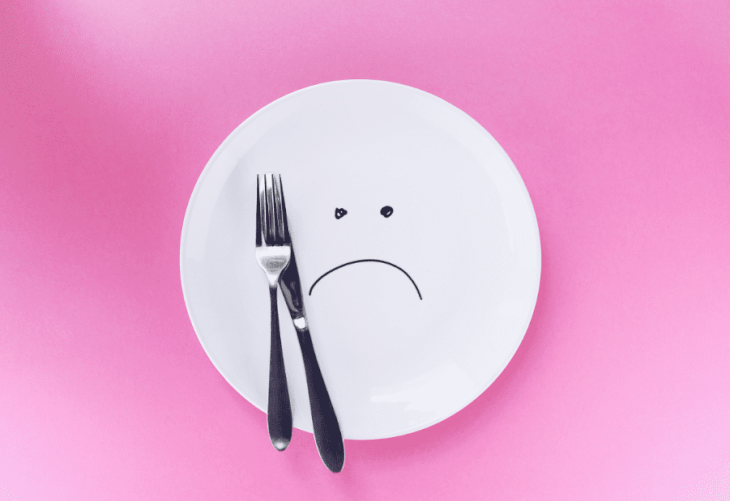
Unsplash
"Emotional eating is typically to soothe unpleasant emotional arousal. Unfortunately, stress and anxiety often cause us to crave high-calorie, fattier foods, and most of us don’t need the additional calorie intake”
Edward Abramson, Ph.D. Clinical Psychologist and Author of Emotional Eating
Making the right decisions on what to eat works hand-in-hand with when to eat. I’m not saying starve yourself, but just listen to your body, “are you hungry?” and “how hungry are you?” before deciding when and what to eat.
9. Trial and Error
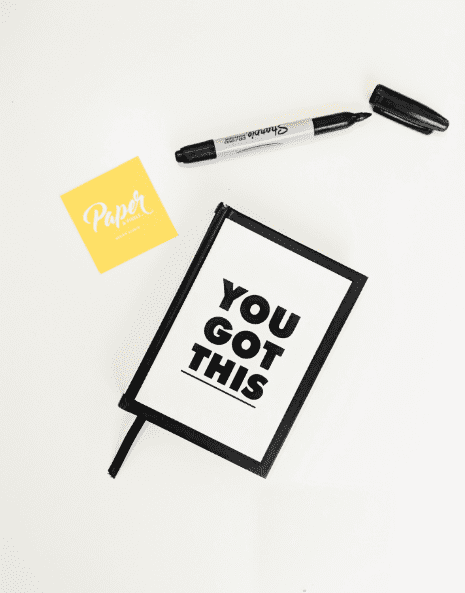
Unsplash
Life is full of trials and errors, and it’s okay. As you progress, you need to be aware of your mindset, talk yourself out of negative spaces, accept who you are, give yourself permission to eat, and forgive yourself for slipping up.
As I mentioned, your mindset won’t change overnight; you won’t automatically develop a healthy relationship with food. All of this will take time, a lot of self-reflection, trial and error with what works for your lifestyle.
The key is not to give up; after every hard day, there will be a good one. How you view every moment and think of your goals will help push you to create a positive, healthy, and happy lifestyle when it comes to food.
10. Reach Out For Support

Unsplash
Finally, a simple yet sometimes hard tip for developing a healthy relationship with food is to reach out for help. Your support system will make a world of difference in your positive mindset and goals and help you in your weak moments.
The more you reach out to your friends, family, colleagues, etc, the more you will see especially during moments you cannot control they will be there to encourage and help you make the right decisions.